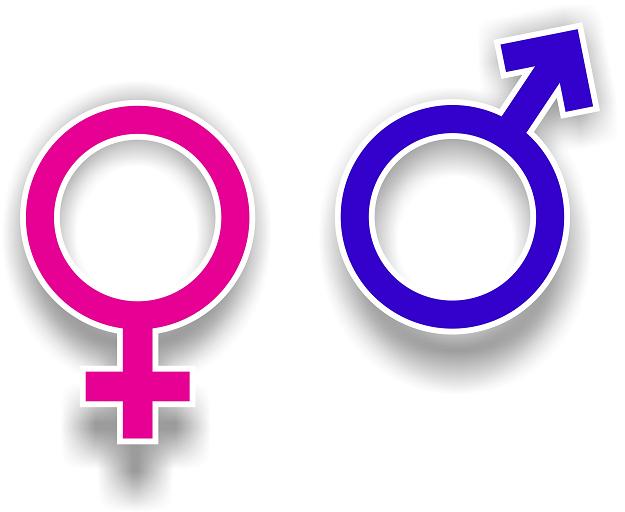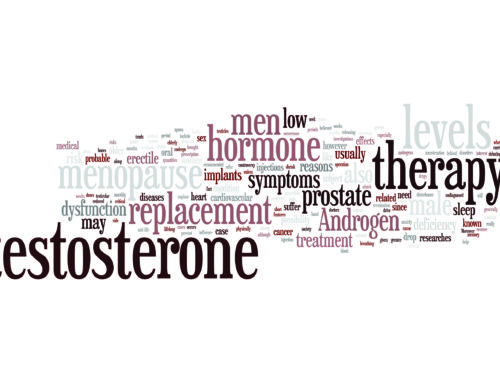This is a step in the right direction. I wonder if we will see a rise in women being diagnosed with Hypoactive Sexual Desire Disorder?
Let’s hope not.
Love & Miracles,
Lisa Marie
Experts Recommend against Diagnosing Testosterone Deficiency in Women
| Contact: Aaron Lohr Director, Media Relations Phone: 202.971.3654 alohr@endocrine.org |
Contact: Jenni Glenn Gingery Manager, Media Relations Phone: 202.971.3655 jgingery@endocrine.org |
Endocrine Society publishes updated Clinical Practice Guideline on Androgens in Women
Washington, DC—The Endocrine Society today issued a Clinical Practice Guideline (CPG) advising against the use of testosterone therapy in healthy women.
The CPG, entitled “Androgen Therapy in Women: A Reappraisal: An Endocrine Society Clinical Practice Guideline,” was published online in the Journal of Clinical Endocrinology and Metabolism (JCEM), a publication of the Endocrine Society. The Society updated its 2006 recommendations to address new research concerning testosterone and dehydroepiandrosterone (DHEA) therapy in women as well as advances in testosterone testing and measurement techniques.
Androgens are a group of sex hormones that includes testosterone. DHEA is a prohormone that can be converted into testosterone or estradiol, a form of estrogen. While these are often thought of as male hormones, small amounts of androgens also are found in women.
“Although limited research suggests testosterone therapy in menopausal women may be linked to improved sexual function, there are too many unanswered questions to justify prescribing testosterone therapy to otherwise healthy women,” said Margaret E. Wierman, MD, of the University of Colorado in Aurora, CO. She also is the Society’s Vice President of Clinical Science and chair of the task force that authored the guideline.
“When we reviewed past studies, we found many women who had low testosterone levels measured by older or new techniques did not exhibit any signs or symptoms of concern,” Wierman said. “As a result, physicians cannot make a diagnosis of androgen deficiency in women.”
This is different from men, who often display specific symptoms of androgen deficiency. In cases where men have both symptoms and low levels of testosterone, they can be diagnosed with hypogonadism, according to the Society’s Clinical Practice Guideline on Testosterone Therapy in Adult Men with Androgen Deficiency Syndromes.
For women, the only situation where the Society suggests prescribing testosterone therapy is if a woman has been diagnosed with Hypoactive Sexual Desire Disorder (HSDD). This condition occurs when a woman has no interest in sex and that lack of interest causes personal distress. In these cases, the CPG suggests a three- to six-month trial of testosterone to see if the therapy improves sexual function.
Some physicians opt to prescribe testosterone therapy to otherwise healthy women on an off-label basis. The CPG recommends that physicians avoid prescribing testosterone to improve sexual dysfunction in women who do not have HSDD. Use of testosterone in women has been linked to changes in cholesterol as well as conditions like acne and hirsutism, the excessive growth of hair, often on the face, back or chest. Long-term risks to the breast or cardiovascular system are unknown.
“Currently, there isn’t enough evidence that any benefits outweigh the risks to most women,” Wierman said. “More research is needed to determine the long-term safety of testosterone therapy in postmenopausal women.”
Review of the use of DHEA therapy showed no significant benefit when given to normal women or those with adrenal insufficiency. As a result, the task force did not recommend treatment of women with DHEA.
Since the publication of the Society’s 2006 CPG, there have been significant advances in testosterone testing and measurement. Now more research is needed to reexamine existing theories about the role of testosterone in women and answer ongoing questions about its safety and effectiveness, Wierman said.
To ensure hormone levels are measured accurately, the test must be carefully calibrated. The Society collaborated with the Centers for Disease Control and other groups to establish the Partnership for the Accurate Testing of Hormones (PATH) to address the need for better hormone testing.
The Hormone Health Network offers additional resources on androgens in women.
Other members of the Endocrine Society task force that developed this CPG include: Wiebke Arlt of the University of Birmingham in Birmingham, U.K.; Rosemary Basson of the University of British Columbia and Vancouver General Hospital in Vancouver, British Columbia, Canada; Susan R. Davis of Monash University in Melbourne, Australia; Karen K. Miller of Massachusetts General Hospital in Boston, MA; Mohammad H. Murad of the Mayo Clinic in Rochester, MN; William Rosner of Columbia University in New York, NY; and Nanette Santoro of the University of Colorado School of Medicine.
The Society established the CPG Program to provide endocrinologists and other clinicians with evidence-based recommendations in the diagnosis and treatment of endocrine-related conditions. Each CPG is created by a task force of topic-related experts in the field. Task forces rely on scientific reviews of the literature in the development of CPG recommendations. The Endocrine Society does not solicit or accept corporate support for its CPGs. All CPGs are supported entirely by Society funds.
The CPG was co-sponsored by the American Society for Reproductive Medicine, the American Congress of Obstetricians and Gynecologists, the European Society of Endocrinology and the International Menopause Society.
# # #
Founded in 1916, the Endocrine Society is the world’s oldest, largest and most active organization devoted to research on hormones and the clinical practice of endocrinology. Today, the Endocrine Society’s membership consists of over 17,000 scientists, physicians, educators, nurses and students in more than 100 countries. Society members represent all basic, applied and clinical interests in endocrinology. The Endocrine Society is based in Washington, DC. To learn more about the Society and the field of endocrinology, visit our site at www.endocrine.org. Follow us on Twitter athttps://twitter.com/#!/EndoMedia.







Leave A Comment